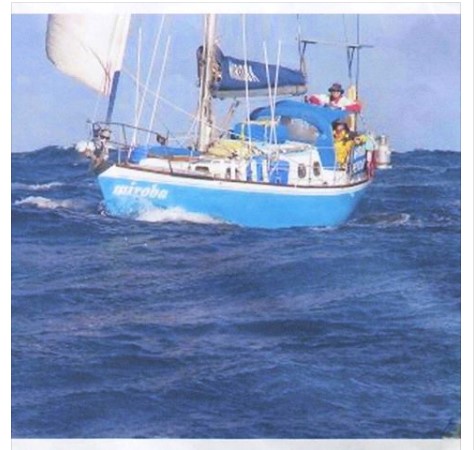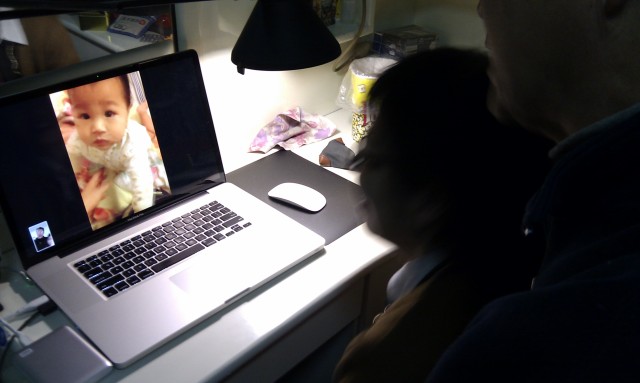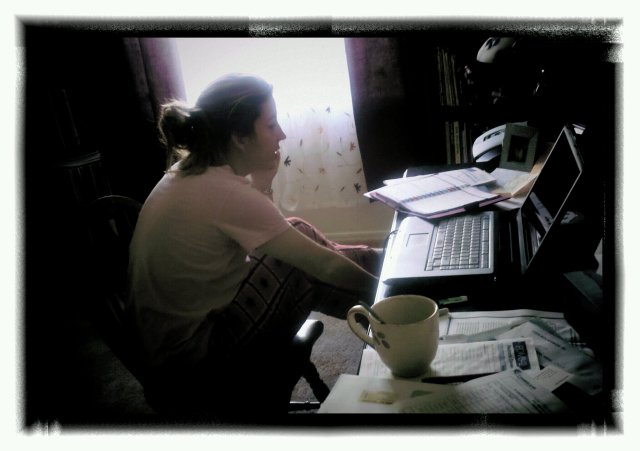I get contacted almost daily by people who want to write guest posts or sponsored posts for this site. In all honesty I am pretty picky – this blog isn’t a way for me to make money but to spread the message about expat life and to tell people about my book. But sometimes people contact me who I think would be a good fit and Kim was one such person. I love her inspiring story of travel and adventure, experience which eventually led her to setting up her own clothing line. It helps that I also love her clothes and can definitely see myself wearing a tunic such as the one pictured at the bottom of this blog. So please enjoy Kim’s tale of how she travelled the world, met her husband, sailed to the Caribbean and eventually set up a company called West Indies Resort Wear.
I left my home in Australia to travel the world at the ripe old age of 24. I had graduated fashion school, and had a few years industry experience before I left, but my main goal was to work and see the world. I didn’t want to do bar work, or fruit picking, or nannying, I wanted to find garment industry type jobs.
My first job was as a pattern maker in London, but after a few months, and with winter fast approaching that just didn’t seem interesting enough, so I started applying for jobs in the fashion industry in 3rd world countries.
It didn’t take long to land a job in Alexandria, Egypt, where I spent a year working for an enormous clothing manufacturer who was supplying cute ladies tee’s and knits to British high street stores like Top Shop.
This was my first experience of real “expat life” as the lifestyle in Egypt was so different to home, that the expat community really sought each other out for company. There were suburbs where most of the expats lived, and there were stores, bars & restaurants targeted towards the expat community. There was even a little supermarket in my neighborhood that catered to the expats. I was so excited to occasionally find New Zealand cheddar cheese there. The smallest tastes of home could get you through a whole week.

Expat life in Egypt was great in terms of earning hard currency and having very little expenses, so I saved a lot of money for my future travels, but it was not an easy life. As a young single woman, in a Muslim country harassment was a part of my daily life. Even at work I was stared and jeered at. After my year there, I was desperate to leave. Looking back I think that I could have lasted longer, if I had have gone away more regularly to get my western world sanity back.
After Egypt I travelled for a while again, and then found myself as Head Designer at Billabong in Jeffreys Bay, South Africa. This was another world entirely, but way more similar to Australia. As South Africa had been such a closed world for so many years of apartheid, the biggest initial adjustment was just trying to understand what people were saying. I was not familiar with the South African accent at all, so for the first 2 weeks I barely understood what anyone was saying. Yes, they were speaking English, but there were so many Afrikaans words and slang mixed in, that I really battled to understand.
I ended up meeting my future husband and living in South Africa for 5 years. I loved my job at Billabong, which was so challenging, and gave me a lot of opportunities to travel. Here I am in China, where they sent me to visit factories…

After my husband & I met, we started to look for some sort of adventure to do together. We were camping one weekend, and one of us had bought an adventure magazine with us. In it was a story about a young couple who bought a boat and went sailing to the Caribbean. As I had done a lot of sailing with my family as a child, and I read a lot of books about amazing solo sailors, I had always thought I would LOVE to go sailing but knew it wasn’t something I would do alone. When my then boyfriend read the article, put the magazine down and said “lets buy a boat and go sailing to the Caribbean” my jaw hit the tent floor ! We hurriedly packed up our campsite and rushed back to “town” to see if we could find a boating magazine and see how much boats cost !
2 years later, we were halfway across the Atlantic Ocean. We had saved our money, bought a boat, learnt how to sail, learnt how to navigate, done some boat deliveries with other people to get experience, provisioned our boat and set sail on the biggest adventure of our lives. Here we are on our tiny boat mid-Atlantic…

It took a total of 55 days at sea to get to the Caribbean, and when we finally dropped anchor off the island of Tobago we were exhausted. We stayed put for 6 months! Eventually the hurricane season ended and we headed north to the more developed islands, we got jobs, got married, saved money again and had dreams of sailing the Pacific. However I got pregnant and we had our first daughter. That changed everything. I couldn’t go get a job, as I didn’t want to leave our child in Caribbean daycare so young, so I started looking for things to buy and sell. I imported some beautiful baskets from Africa, and I started making beaded jewelry on the boat, which I sold to different resort boutiques as we sailed around. Eventually my good friend who had been the Production manager at Billabong when I was there said, “when are you going to stop fiddling around making jewelry and start your own label?”.
That was an “aha” moment for me, and the beginning of West Indies Wear. I flew to India where I found the most amazing pure cotton fabrics, and I designed the first collection on an overnight train to Delhi. Once the samples arrived with me back in the Caribbean, my husband, daughter & I would dinghy all around the island looking for good places for the photo shoot. Here we are in the dinghy….

We sailed between the islands, visiting resorts and introducing the collection to the different buyers. 12 years on, and West Indies Wear is still going strong. We have moved back home to Australia now, had 2 more babies, built our own little house with an adorable design studio and we are back to dreaming of our next boat, and next adventure.
West Indies Wear is inspired by tropical island travel, so we use vibrant Caribbean colors and feature beachy, on-trend prints like sea stars, coral, palm trees, pineapples and tropical flowers. Here is a photo of my little sister Amy wearing our number one seller… the Starfish Tunic.

Kim Van Loo is an Australian fashion designer, who started West Indies Resort Wear, whilst sailing the Caribbean islands. She currently lives at home in Australia with her husband and three children, but travels several times a year to USA to show her new collections at trade shows and catch up with all of her buyers.















